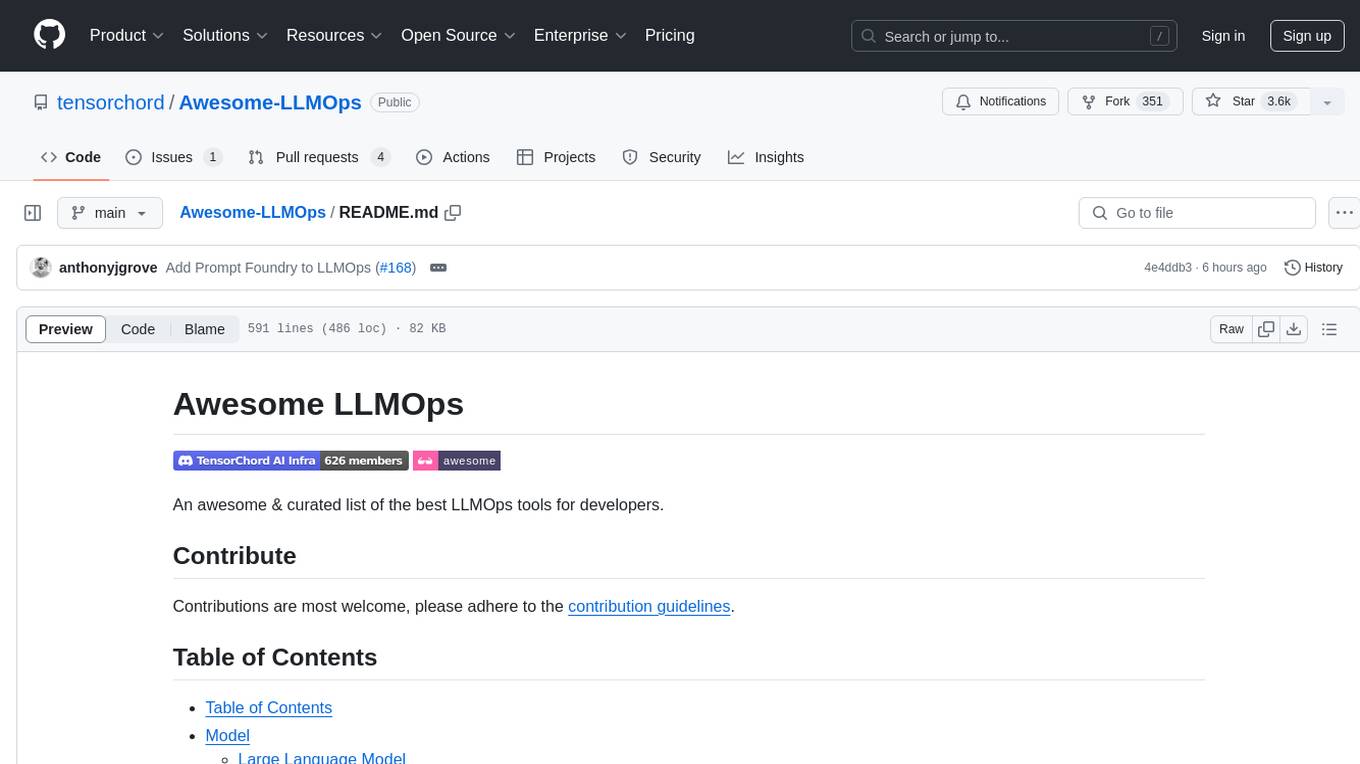
Awesome-LLM-Tabular
Awesome-LLM-Tabular: a curated list of Large Language Model applied to Tabular Data
Stars: 335
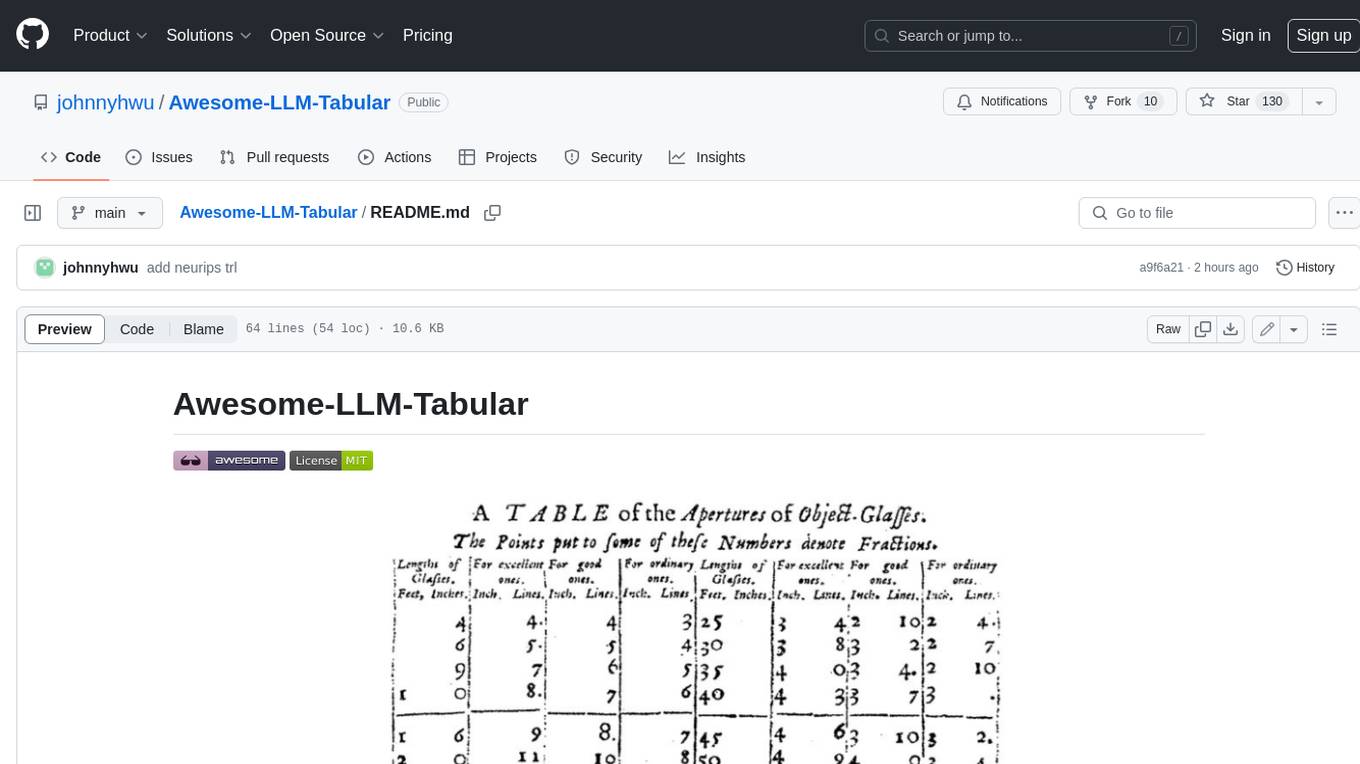
This repository is a curated list of research papers that explore the integration of Large Language Model (LLM) technology with tabular data. It aims to provide a comprehensive resource for researchers and practitioners interested in this emerging field. The repository includes papers on a wide range of topics, including table-to-text generation, table question answering, and tabular data classification. It also includes a section on related datasets and resources.
README:
💡 Since the emergence of ChatGPT, Large Language Models (LLMs) have garnered significant attention, with new advancements continuously emerging. LLMs have found applications in various domains like vision, audio, and text tasks. However, tabular data remains a crucial data format in this world. Hence, this repo focuses on collecting research papers that explore the integration of LLM technology with tabular data, and aims to save you valuable time and boost research efficiency.
✨ Awesome-LLM-Tabular is a curated list of Large Language Model applied to Tabular Data.
🔥 This project is currently under development. Feel free to ⭐ (STAR) and 🔭 (WATCH) it to stay updated on the latest developments.
- Table Representation Learning Workshop @ NeurIPS 2023
- Table Representation Learning Workshop @ NeurIPS 2024
@misc{wu2024awesomellmtabular,
author = {Hong-Wei, Wu},
title = {Awesome-LLM-Tabular},
year = {2024},
note = {Accessed: 2024-05-30},
url = {https://github.com/johnnyhwu/Awesome-LLM-Tabular},
orcid = {https://orcid.org/0009-0005-8073-5297}
}
We welcome contributions to keep this repository up-to-date with the latest research and applications of LLM in the tabular domain. Whether you want to correct any mistakes, add new content, or suggest improvements, your contributions are highly appreciated 🤗.
For Tasks:
Click tags to check more tools for each tasksFor Jobs:
Alternative AI tools for Awesome-LLM-Tabular
Similar Open Source Tools

Awesome-LLM-Tabular
This repository is a curated list of research papers that explore the integration of Large Language Model (LLM) technology with tabular data. It aims to provide a comprehensive resource for researchers and practitioners interested in this emerging field. The repository includes papers on a wide range of topics, including table-to-text generation, table question answering, and tabular data classification. It also includes a section on related datasets and resources.
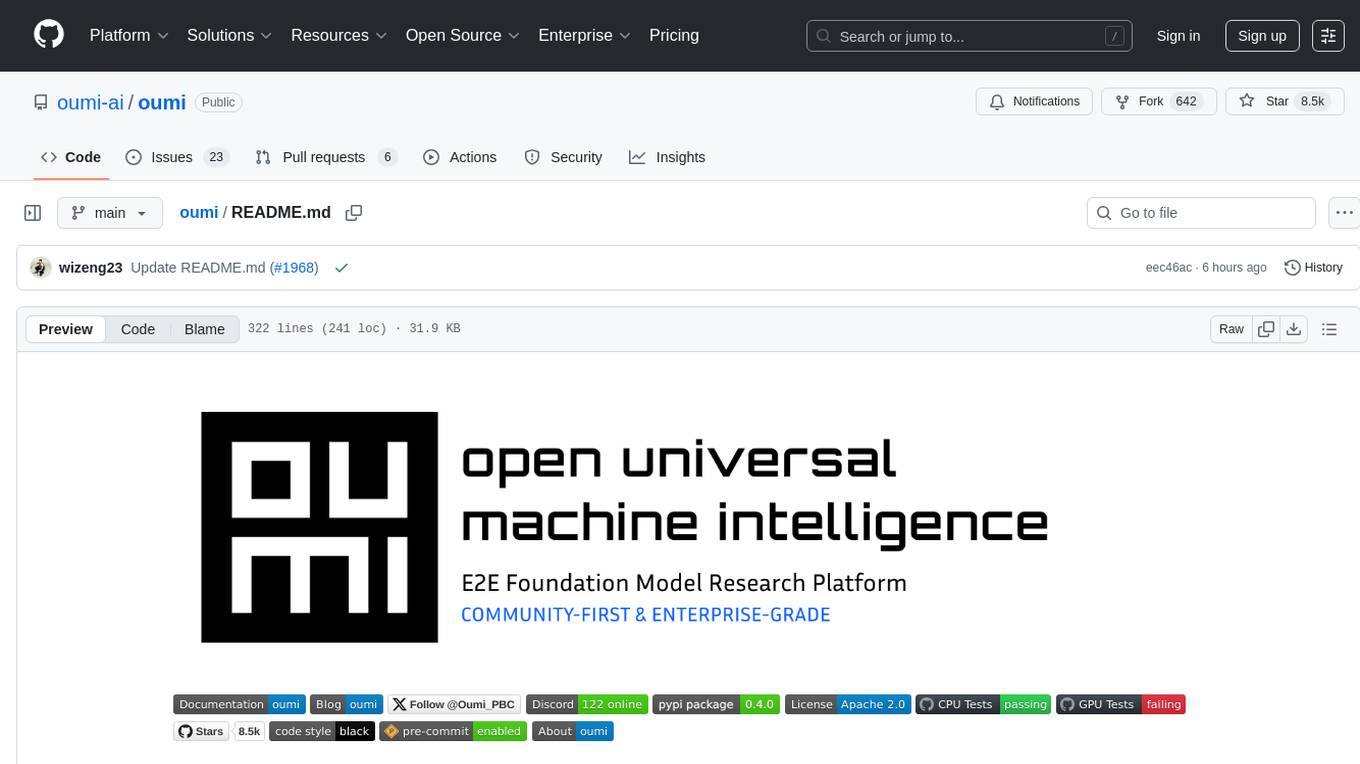
oumi
Oumi is an open-source platform for building state-of-the-art foundation models, offering tools for data preparation, training, evaluation, and deployment. It supports training and fine-tuning models with various parameters, working with text and multimodal models, synthesizing and curating training data, deploying models efficiently, evaluating models comprehensively, and running on different platforms. Oumi provides a consistent API, reliability, and flexibility for research purposes.
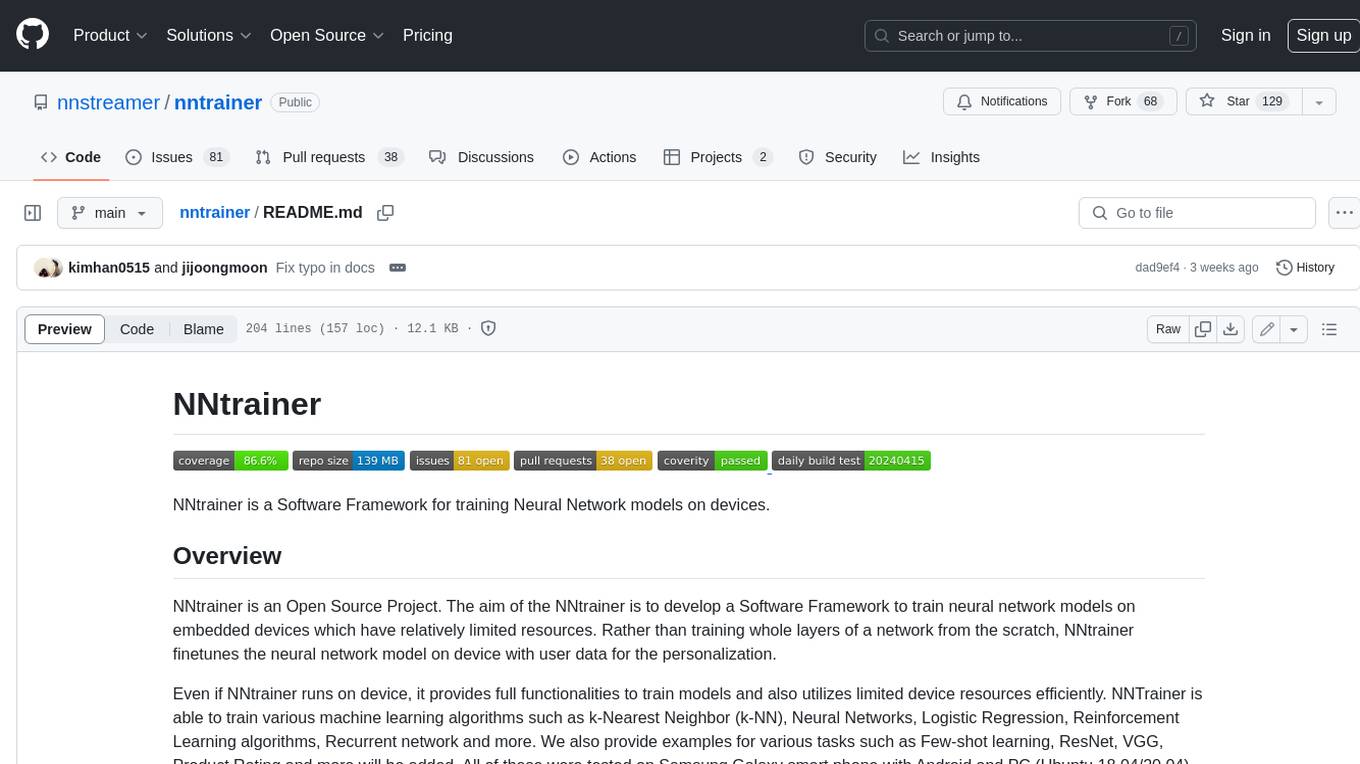
nntrainer
NNtrainer is a software framework for training neural network models on devices with limited resources. It enables on-device fine-tuning of neural networks using user data for personalization. NNtrainer supports various machine learning algorithms and provides examples for tasks such as few-shot learning, ResNet, VGG, and product rating. It is optimized for embedded devices and utilizes CBLAS and CUBLAS for accelerated calculations. NNtrainer is open source and released under the Apache License version 2.0.
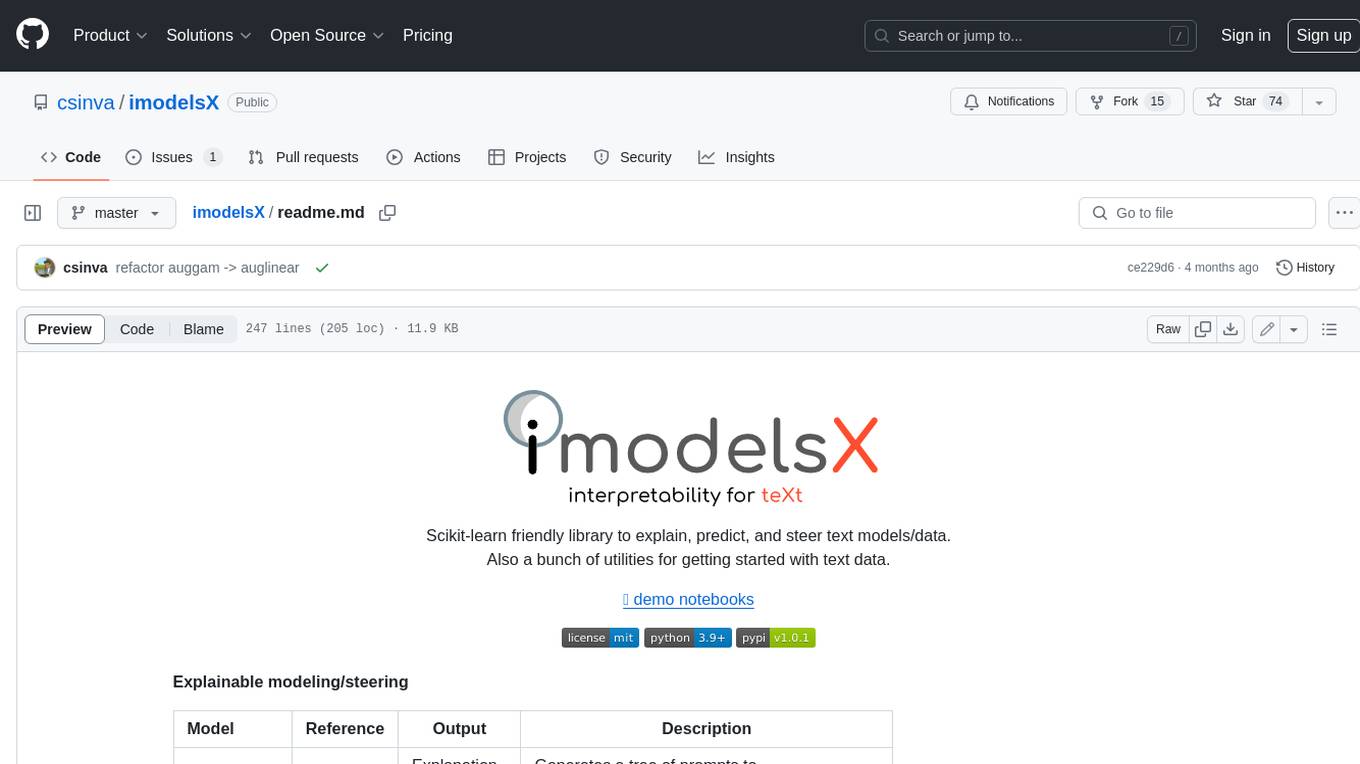
imodelsX
imodelsX is a Scikit-learn friendly library that provides tools for explaining, predicting, and steering text models/data. It also includes a collection of utilities for getting started with text data. **Explainable modeling/steering** | Model | Reference | Output | Description | |---|---|---|---| | Tree-Prompt | [Reference](https://github.com/microsoft/AugML/tree/main/imodelsX/tree_prompt) | Explanation + Steering | Generates a tree of prompts to steer an LLM (_Official_) | | iPrompt | [Reference](https://github.com/microsoft/AugML/tree/main/imodelsX/iprompt) | Explanation + Steering | Generates a prompt that explains patterns in data (_Official_) | | AutoPrompt | [Reference](https://github.com/microsoft/AugML/tree/main/imodelsX/autoprompt) | Explanation + Steering | Find a natural-language prompt using input-gradients (⌛ In progress)| | D3 | [Reference](https://github.com/microsoft/AugML/tree/main/imodelsX/d3) | Explanation | Explain the difference between two distributions | | SASC | [Reference](https://github.com/microsoft/AugML/tree/main/imodelsX/sasc) | Explanation | Explain a black-box text module using an LLM (_Official_) | | Aug-Linear | [Reference](https://github.com/microsoft/AugML/tree/main/imodelsX/aug_linear) | Linear model | Fit better linear model using an LLM to extract embeddings (_Official_) | | Aug-Tree | [Reference](https://github.com/microsoft/AugML/tree/main/imodelsX/aug_tree) | Decision tree | Fit better decision tree using an LLM to expand features (_Official_) | **General utilities** | Model | Reference | |---|---| | LLM wrapper| [Reference](https://github.com/microsoft/AugML/tree/main/imodelsX/llm) | Easily call different LLMs | | | Dataset wrapper| [Reference](https://github.com/microsoft/AugML/tree/main/imodelsX/data) | Download minimially processed huggingface datasets | | | Bag of Ngrams | [Reference](https://github.com/microsoft/AugML/tree/main/imodelsX/bag_of_ngrams) | Learn a linear model of ngrams | | | Linear Finetune | [Reference](https://github.com/microsoft/AugML/tree/main/imodelsX/linear_finetune) | Finetune a single linear layer on top of LLM embeddings | | **Related work** * [imodels package](https://github.com/microsoft/interpretml/tree/main/imodels) (JOSS 2021) - interpretable ML package for concise, transparent, and accurate predictive modeling (sklearn-compatible). * [Adaptive wavelet distillation](https://arxiv.org/abs/2111.06185) (NeurIPS 2021) - distilling a neural network into a concise wavelet model * [Transformation importance](https://arxiv.org/abs/1912.04938) (ICLR 2020 workshop) - using simple reparameterizations, allows for calculating disentangled importances to transformations of the input (e.g. assigning importances to different frequencies) * [Hierarchical interpretations](https://arxiv.org/abs/1807.03343) (ICLR 2019) - extends CD to CNNs / arbitrary DNNs, and aggregates explanations into a hierarchy * [Interpretation regularization](https://arxiv.org/abs/2006.14340) (ICML 2020) - penalizes CD / ACD scores during training to make models generalize better * [PDR interpretability framework](https://www.pnas.org/doi/10.1073/pnas.1814225116) (PNAS 2019) - an overarching framewwork for guiding and framing interpretable machine learning
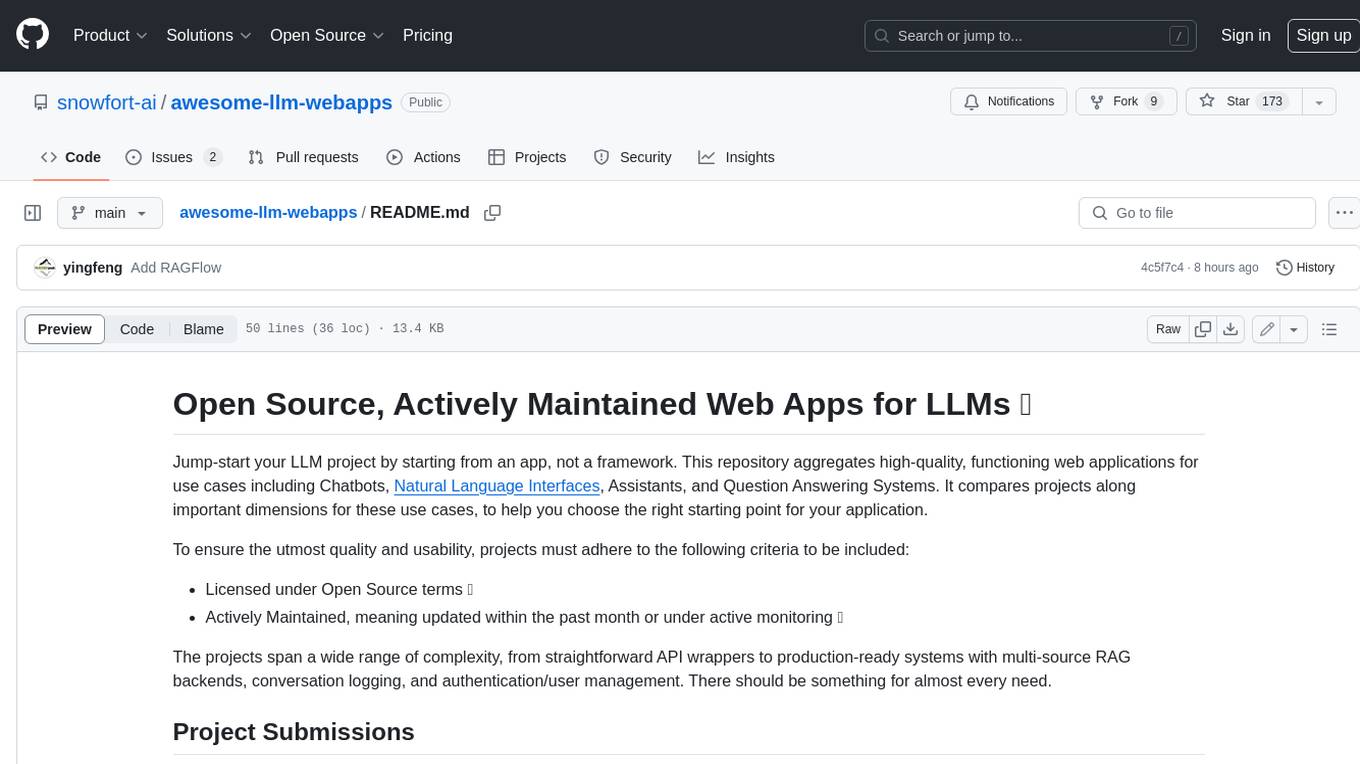
awesome-llm-webapps
This repository is a curated list of open-source, actively maintained web applications that leverage large language models (LLMs) for various use cases, including chatbots, natural language interfaces, assistants, and question answering systems. The projects are evaluated based on key criteria such as licensing, maintenance status, complexity, and features, to help users select the most suitable starting point for their LLM-based applications. The repository welcomes contributions and encourages users to submit projects that meet the criteria or suggest improvements to the existing list.
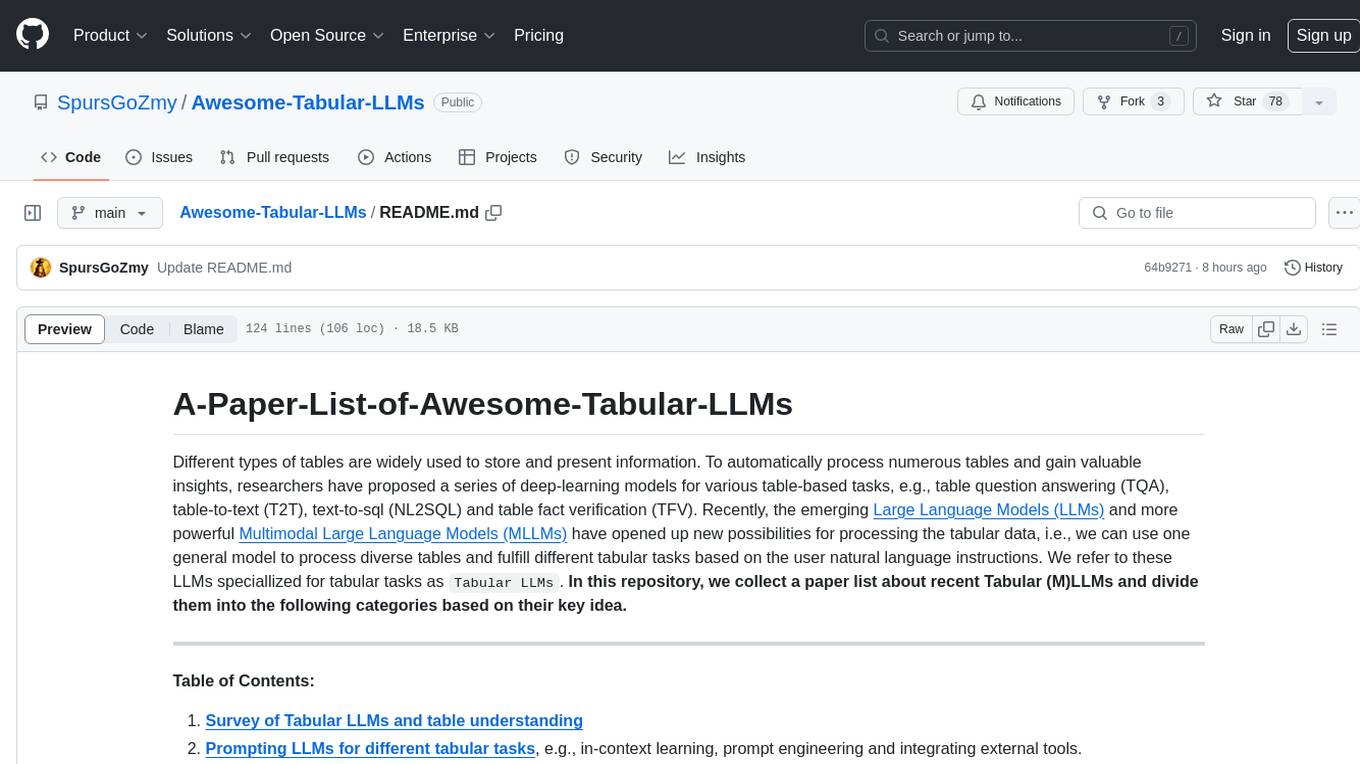
Awesome-Tabular-LLMs
This repository is a collection of papers on Tabular Large Language Models (LLMs) specialized for processing tabular data. It includes surveys, models, and applications related to table understanding tasks such as Table Question Answering, Table-to-Text, Text-to-SQL, and more. The repository categorizes the papers based on key ideas and provides insights into the advancements in using LLMs for processing diverse tables and fulfilling various tabular tasks based on natural language instructions.
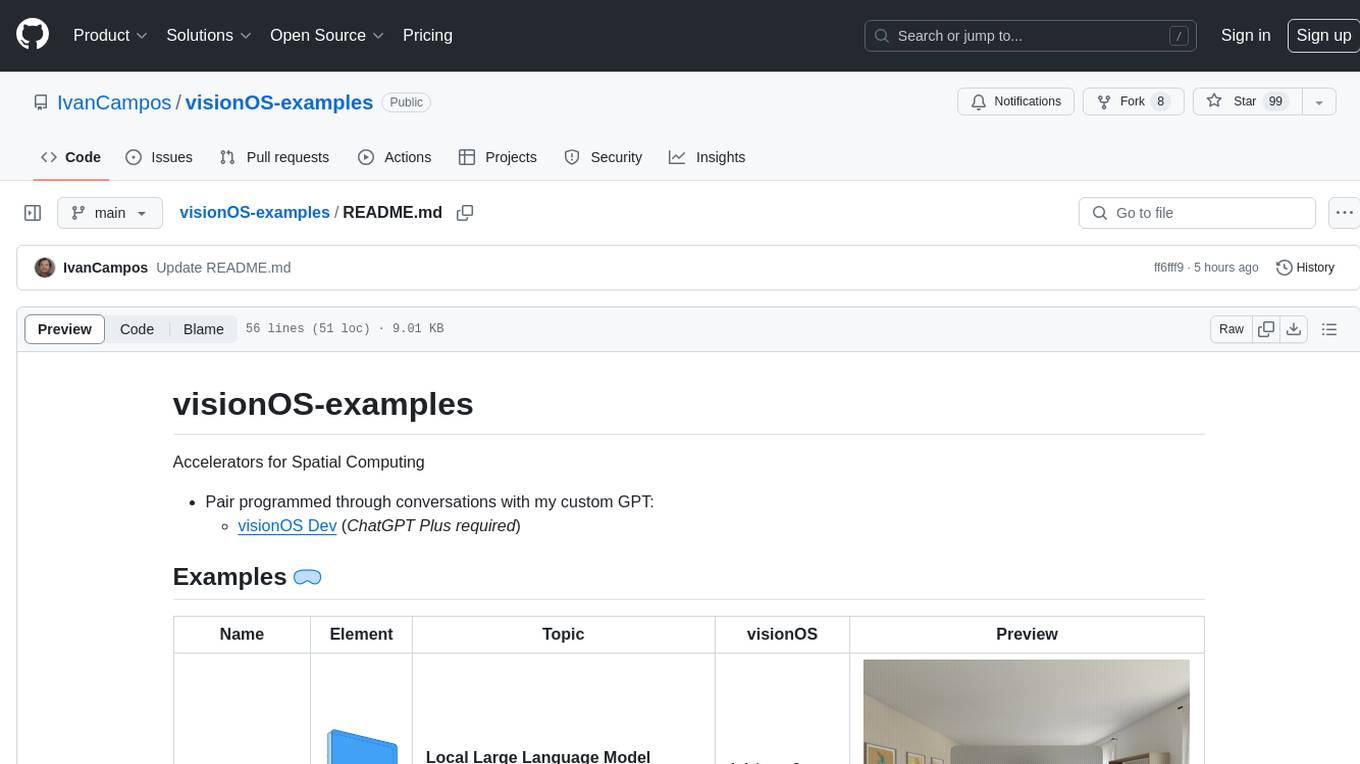
visionOS-examples
visionOS-examples is a repository containing accelerators for Spatial Computing. It includes examples such as Local Large Language Model, Chat Apple Vision Pro, WebSockets, Anchor To Head, Hand Tracking, Battery Life, Countdown, Plane Detection, Timer Vision, and PencilKit for visionOS. The repository showcases various functionalities and features for Apple Vision Pro, offering tools for developers to enhance their visionOS apps with capabilities like hand tracking, plane detection, and real-time cryptocurrency prices.
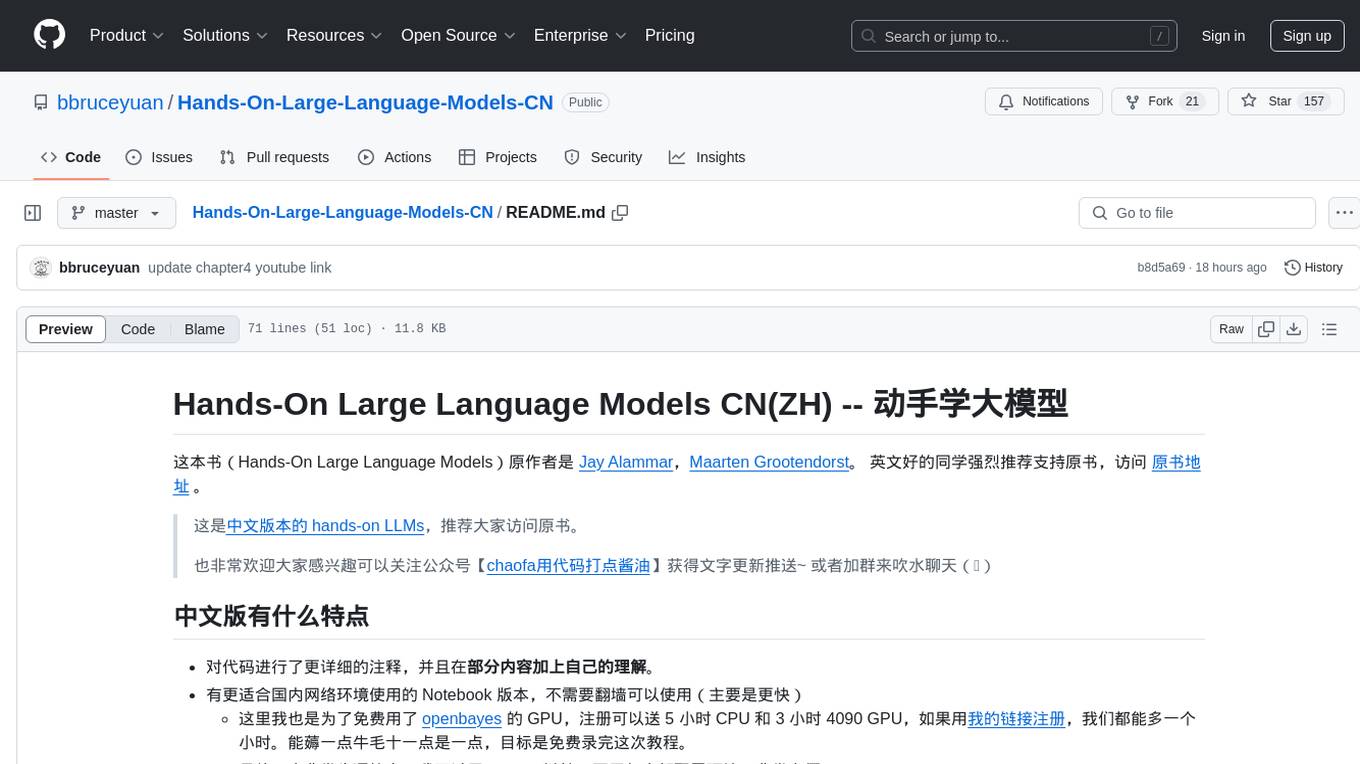
Hands-On-Large-Language-Models-CN
Hands-On Large Language Models CN(ZH) is a Chinese version of the book 'Hands-On Large Language Models' by Jay Alammar and Maarten Grootendorst. It provides detailed code annotations and additional insights, offers Notebook versions suitable for Chinese network environments, utilizes openbayes for free GPU access, allows convenient environment setup with vscode, and includes accompanying Chinese language videos on platforms like Bilibili and YouTube. The book covers various chapters on topics like Tokens and Embeddings, Transformer LLMs, Text Classification, Text Clustering, Prompt Engineering, Text Generation, Semantic Search, Multimodal LLMs, Text Embedding Models, Fine-tuning Models, and more.
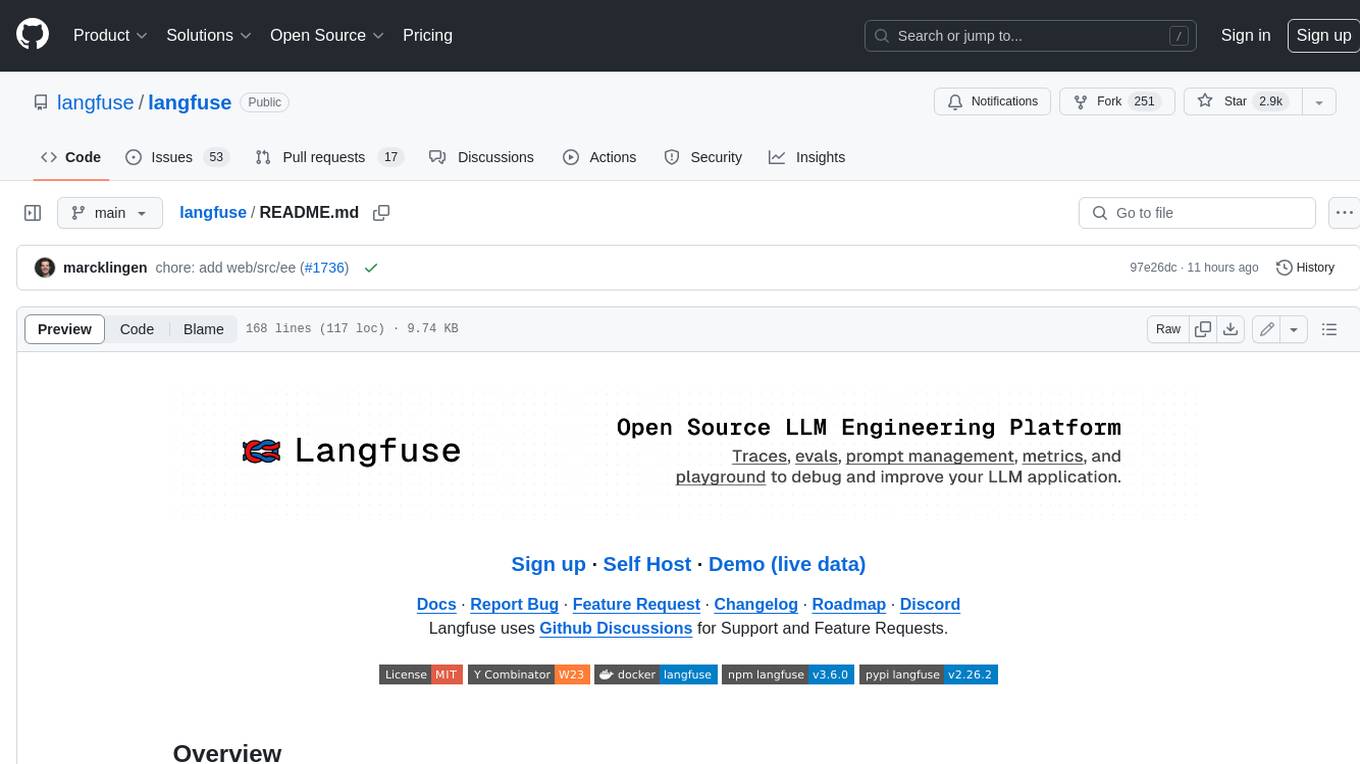
langfuse
Langfuse is a powerful tool that helps you develop, monitor, and test your LLM applications. With Langfuse, you can: * **Develop:** Instrument your app and start ingesting traces to Langfuse, inspect and debug complex logs, and manage, version, and deploy prompts from within Langfuse. * **Monitor:** Track metrics (cost, latency, quality) and gain insights from dashboards & data exports, collect and calculate scores for your LLM completions, run model-based evaluations, collect user feedback, and manually score observations in Langfuse. * **Test:** Track and test app behaviour before deploying a new version, test expected in and output pairs and benchmark performance before deploying, and track versions and releases in your application. Langfuse is easy to get started with and offers a generous free tier. You can sign up for Langfuse Cloud or deploy Langfuse locally or on your own infrastructure. Langfuse also offers a variety of integrations to make it easy to connect to your LLM applications.
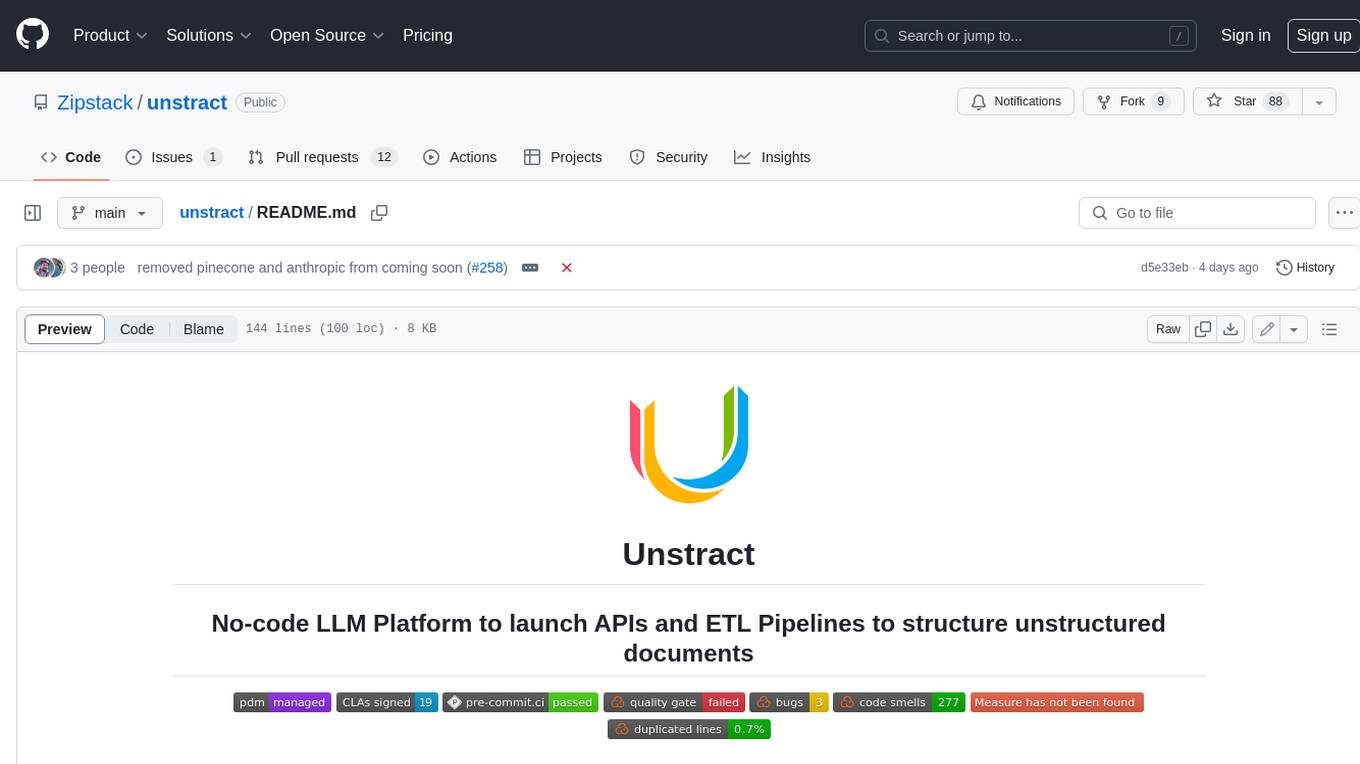
unstract
Unstract is a no-code platform that enables users to launch APIs and ETL pipelines to structure unstructured documents. With Unstract, users can go beyond co-pilots by enabling machine-to-machine automation. Unstract's Prompt Studio provides a simple, no-code approach to creating prompts for LLMs, vector databases, embedding models, and text extractors. Users can then configure Prompt Studio projects as API deployments or ETL pipelines to automate critical business processes that involve complex documents. Unstract supports a wide range of LLM providers, vector databases, embeddings, text extractors, ETL sources, and ETL destinations, providing users with the flexibility to choose the best tools for their needs.
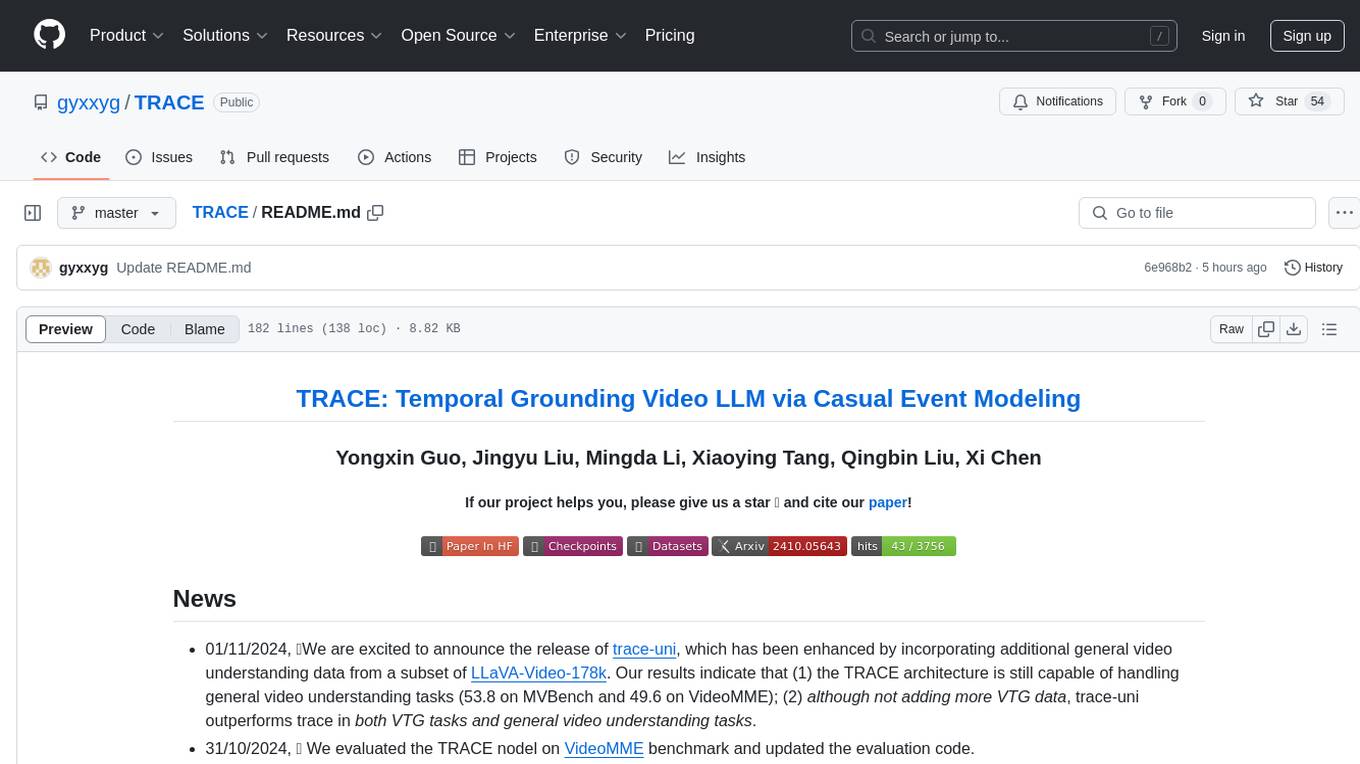
TRACE
TRACE is a temporal grounding video model that utilizes causal event modeling to capture videos' inherent structure. It presents a task-interleaved video LLM model tailored for sequential encoding/decoding of timestamps, salient scores, and textual captions. The project includes various model checkpoints for different stages and fine-tuning on specific datasets. It provides evaluation codes for different tasks like VTG, MVBench, and VideoMME. The repository also offers annotation files and links to raw videos preparation projects. Users can train the model on different tasks and evaluate the performance based on metrics like CIDER, METEOR, SODA_c, F1, mAP, Hit@1, etc. TRACE has been enhanced with trace-retrieval and trace-uni models, showing improved performance on dense video captioning and general video understanding tasks.
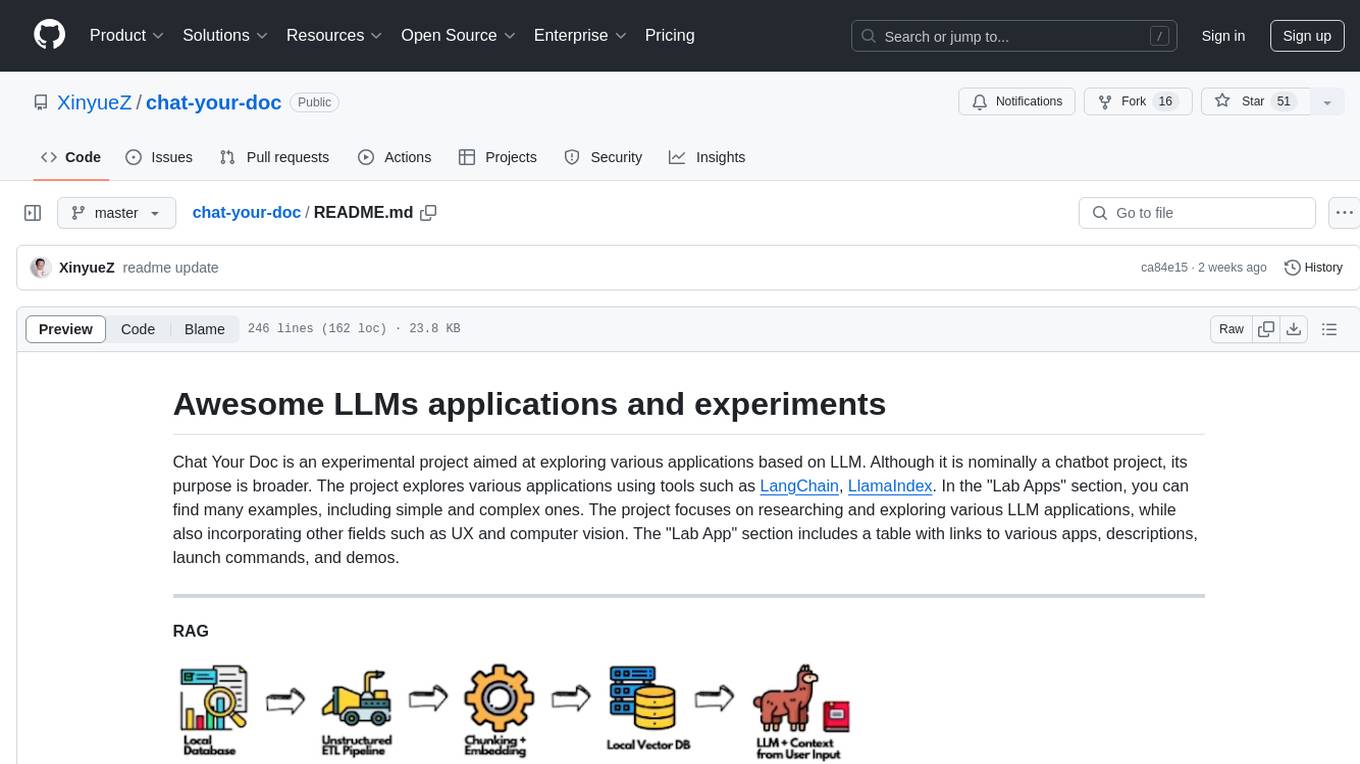
chat-your-doc
Chat Your Doc is an experimental project exploring various applications based on LLM technology. It goes beyond being just a chatbot project, focusing on researching LLM applications using tools like LangChain and LlamaIndex. The project delves into UX, computer vision, and offers a range of examples in the 'Lab Apps' section. It includes links to different apps, descriptions, launch commands, and demos, aiming to showcase the versatility and potential of LLM applications.
gpupixel
GPUPixel is a real-time, high-performance image and video filter library written in C++11 and based on OpenGL/ES. It incorporates a built-in beauty face filter that achieves commercial-grade beauty effects. The library is extremely easy to compile and integrate with a small size, supporting platforms including iOS, Android, Mac, Windows, and Linux. GPUPixel provides various filters like skin smoothing, whitening, face slimming, big eyes, lipstick, and blush. It supports input formats like YUV420P, RGBA, JPEG, PNG, and output formats like RGBA and YUV420P. The library's performance on devices like iPhone and Android is optimized, with low CPU usage and fast processing times. GPUPixel's lib size is compact, making it suitable for mobile and desktop applications.
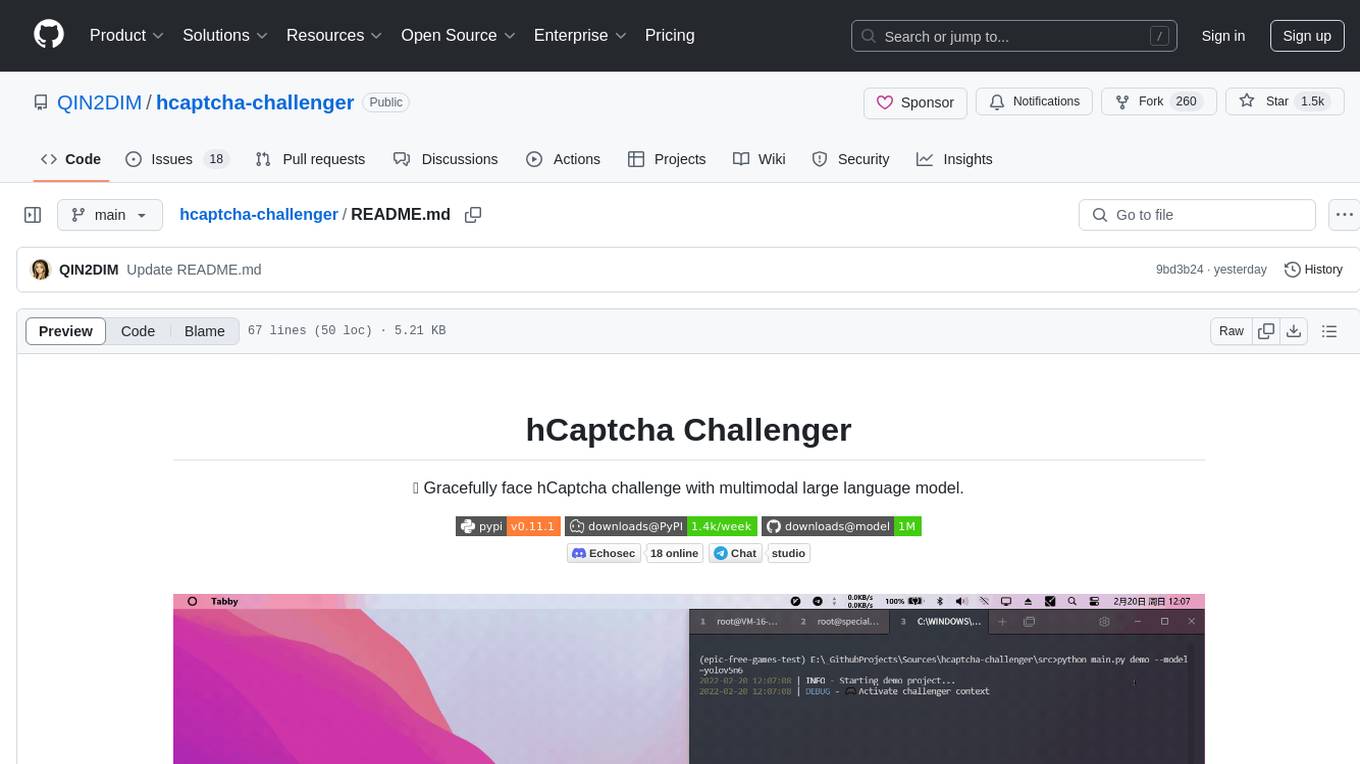
hcaptcha-challenger
hCaptcha Challenger is a tool designed to gracefully face hCaptcha challenges using a multimodal large language model. It does not rely on Tampermonkey scripts or third-party anti-captcha services, instead implementing interfaces for 'AI vs AI' scenarios. The tool supports various challenge types such as image labeling, drag and drop, and advanced tasks like self-supervised challenges and Agentic Workflow. Users can access documentation in multiple languages and leverage resources for tasks like model training, dataset annotation, and model upgrading. The tool aims to enhance user experience in handling hCaptcha challenges with innovative AI capabilities.
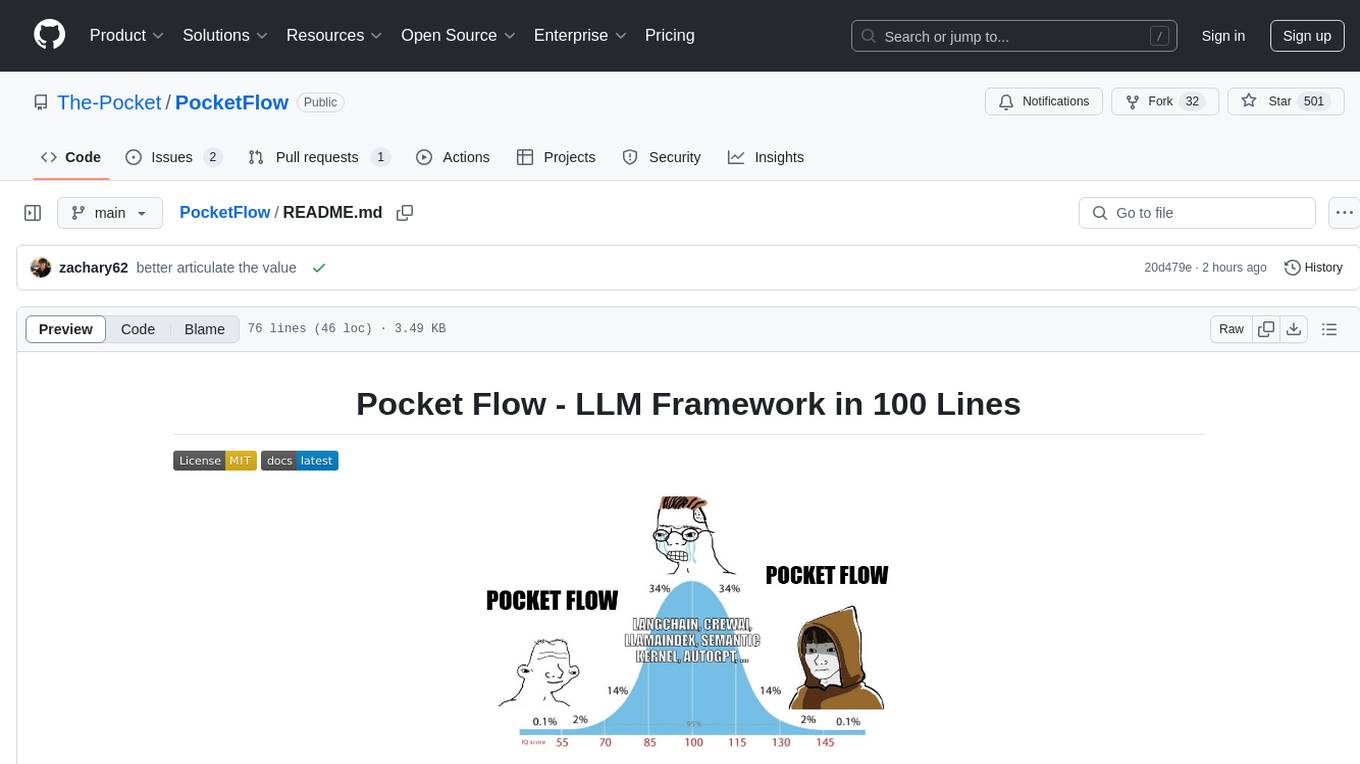
PocketFlow
Pocket Flow is a 100-line minimalist LLM framework designed for (Multi-)Agents, Workflow, RAG, etc. It provides a core abstraction for LLM projects by focusing on computation and communication through a graph structure and shared store. The framework aims to support the development of LLM Agents, such as Cursor AI, by offering a minimal and low-level approach that is well-suited for understanding and usage. Users can install Pocket Flow via pip or by copying the source code, and detailed documentation is available on the project website.
For similar tasks

Awesome-LLM-Tabular
This repository is a curated list of research papers that explore the integration of Large Language Model (LLM) technology with tabular data. It aims to provide a comprehensive resource for researchers and practitioners interested in this emerging field. The repository includes papers on a wide range of topics, including table-to-text generation, table question answering, and tabular data classification. It also includes a section on related datasets and resources.
For similar jobs

Azure-Analytics-and-AI-Engagement
The Azure-Analytics-and-AI-Engagement repository provides packaged Industry Scenario DREAM Demos with ARM templates (Containing a demo web application, Power BI reports, Synapse resources, AML Notebooks etc.) that can be deployed in a customer’s subscription using the CAPE tool within a matter of few hours. Partners can also deploy DREAM Demos in their own subscriptions using DPoC.

skyvern
Skyvern automates browser-based workflows using LLMs and computer vision. It provides a simple API endpoint to fully automate manual workflows, replacing brittle or unreliable automation solutions. Traditional approaches to browser automations required writing custom scripts for websites, often relying on DOM parsing and XPath-based interactions which would break whenever the website layouts changed. Instead of only relying on code-defined XPath interactions, Skyvern adds computer vision and LLMs to the mix to parse items in the viewport in real-time, create a plan for interaction and interact with them. This approach gives us a few advantages: 1. Skyvern can operate on websites it’s never seen before, as it’s able to map visual elements to actions necessary to complete a workflow, without any customized code 2. Skyvern is resistant to website layout changes, as there are no pre-determined XPaths or other selectors our system is looking for while trying to navigate 3. Skyvern leverages LLMs to reason through interactions to ensure we can cover complex situations. Examples include: 1. If you wanted to get an auto insurance quote from Geico, the answer to a common question “Were you eligible to drive at 18?” could be inferred from the driver receiving their license at age 16 2. If you were doing competitor analysis, it’s understanding that an Arnold Palmer 22 oz can at 7/11 is almost definitely the same product as a 23 oz can at Gopuff (even though the sizes are slightly different, which could be a rounding error!) Want to see examples of Skyvern in action? Jump to #real-world-examples-of- skyvern

pandas-ai
PandasAI is a Python library that makes it easy to ask questions to your data in natural language. It helps you to explore, clean, and analyze your data using generative AI.
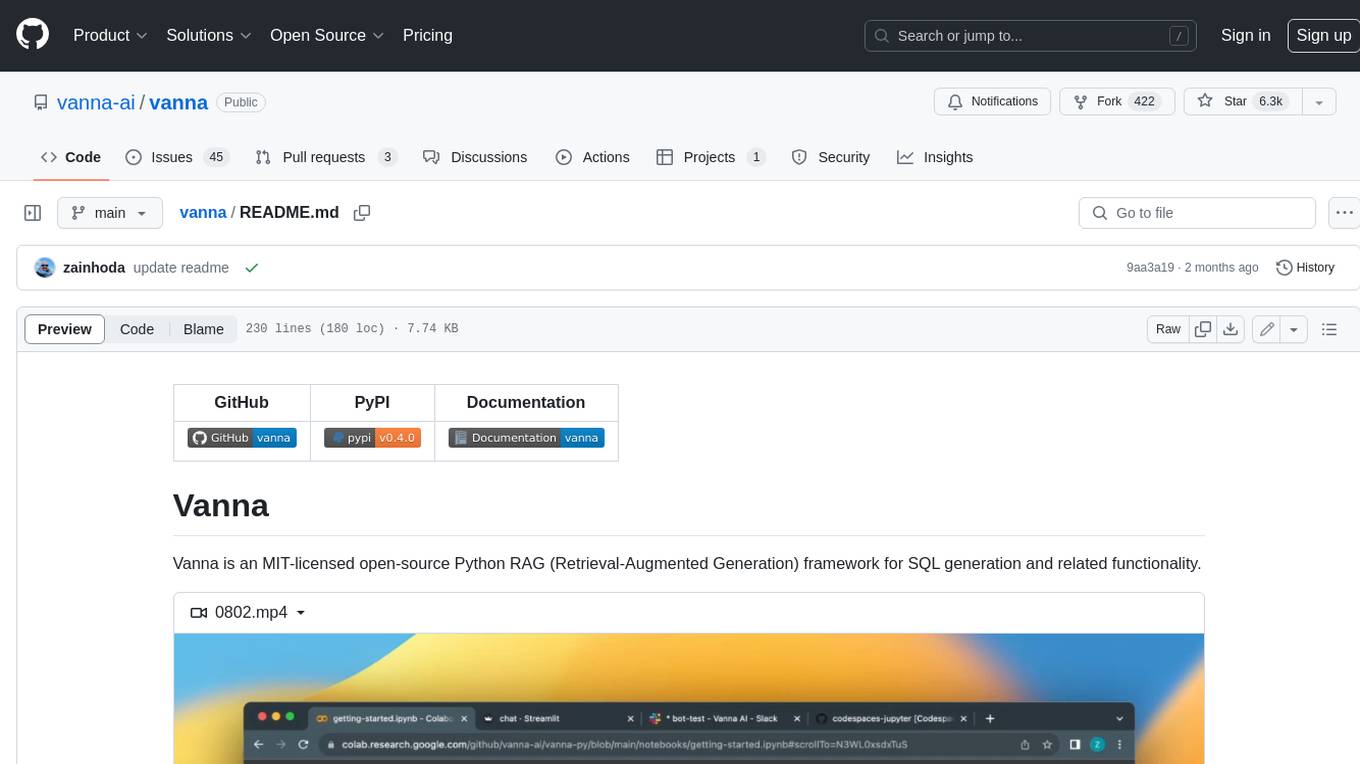
vanna
Vanna is an open-source Python framework for SQL generation and related functionality. It uses Retrieval-Augmented Generation (RAG) to train a model on your data, which can then be used to ask questions and get back SQL queries. Vanna is designed to be portable across different LLMs and vector databases, and it supports any SQL database. It is also secure and private, as your database contents are never sent to the LLM or the vector database.

databend
Databend is an open-source cloud data warehouse that serves as a cost-effective alternative to Snowflake. With its focus on fast query execution and data ingestion, it's designed for complex analysis of the world's largest datasets.

Avalonia-Assistant
Avalonia-Assistant is an open-source desktop intelligent assistant that aims to provide a user-friendly interactive experience based on the Avalonia UI framework and the integration of Semantic Kernel with OpenAI or other large LLM models. By utilizing Avalonia-Assistant, you can perform various desktop operations through text or voice commands, enhancing your productivity and daily office experience.
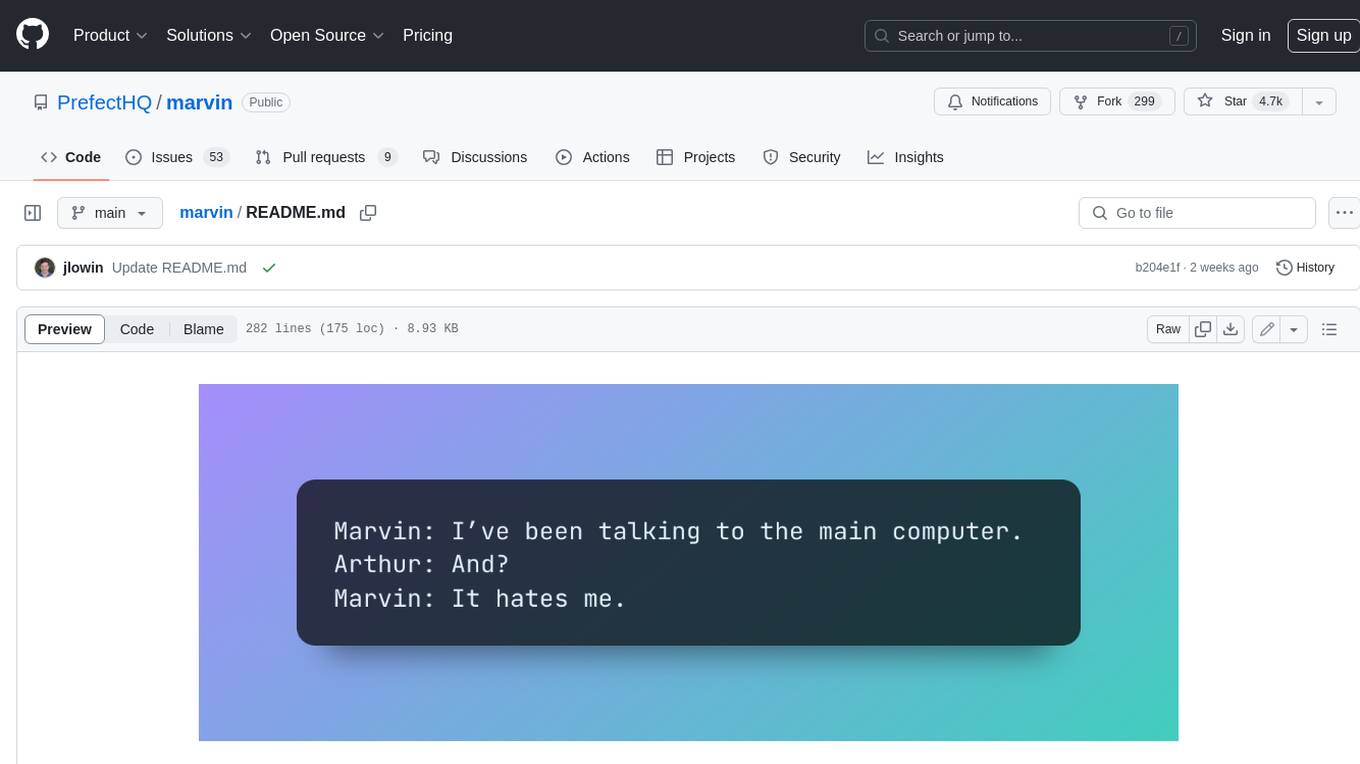
marvin
Marvin is a lightweight AI toolkit for building natural language interfaces that are reliable, scalable, and easy to trust. Each of Marvin's tools is simple and self-documenting, using AI to solve common but complex challenges like entity extraction, classification, and generating synthetic data. Each tool is independent and incrementally adoptable, so you can use them on their own or in combination with any other library. Marvin is also multi-modal, supporting both image and audio generation as well using images as inputs for extraction and classification. Marvin is for developers who care more about _using_ AI than _building_ AI, and we are focused on creating an exceptional developer experience. Marvin users should feel empowered to bring tightly-scoped "AI magic" into any traditional software project with just a few extra lines of code. Marvin aims to merge the best practices for building dependable, observable software with the best practices for building with generative AI into a single, easy-to-use library. It's a serious tool, but we hope you have fun with it. Marvin is open-source, free to use, and made with 💙 by the team at Prefect.

activepieces
Activepieces is an open source replacement for Zapier, designed to be extensible through a type-safe pieces framework written in Typescript. It features a user-friendly Workflow Builder with support for Branches, Loops, and Drag and Drop. Activepieces integrates with Google Sheets, OpenAI, Discord, and RSS, along with 80+ other integrations. The list of supported integrations continues to grow rapidly, thanks to valuable contributions from the community. Activepieces is an open ecosystem; all piece source code is available in the repository, and they are versioned and published directly to npmjs.com upon contributions. If you cannot find a specific piece on the pieces roadmap, please submit a request by visiting the following link: Request Piece Alternatively, if you are a developer, you can quickly build your own piece using our TypeScript framework. For guidance, please refer to the following guide: Contributor's Guide


